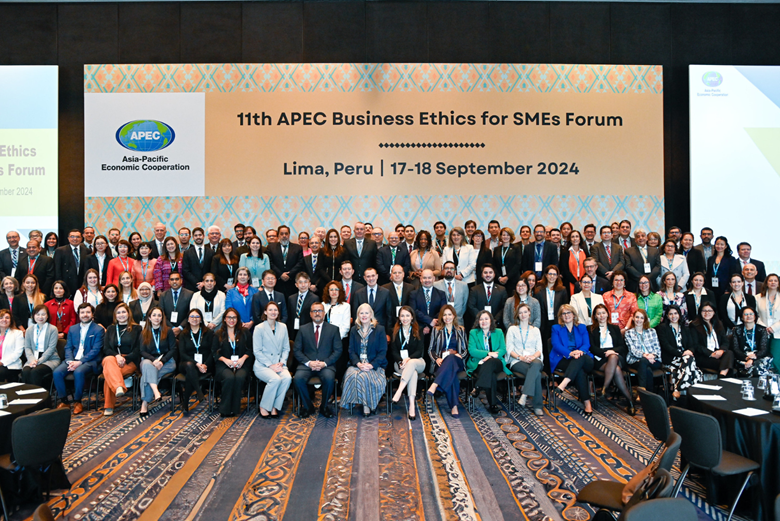
Dedicated to advancing ethical standards in health-related sectors, senior stakeholders from across the Asia-Pacific convened in Lima last month to drive action to enhance ethical practices, reinforcing APEC's leadership in promoting sustainable growth and fair competition for small and medium enterprises (SMEs).
"Ethical business practices are not just about doing the right thing-they are about creating environments where businesses can thrive, where innovation can flourish and where societies can prosper," said Diane Farrell, Deputy Under Secretary for International Trade at the US Department of Commerce, upon opening the 2024 APEC Business Ethics for Small and Medium Enterprises Forum.
Endorsed by APEC Small and Medium Enterprises Ministers in 2011 and recognized by APEC Economic Leaders in 2012, the Business Ethics for APEC SMEs Initiative is the world's largest public-private partnership promoting ethical business practices in health-related sectors.
The APEC Kuala Lumpur Principles for medical technology industry and Mexico City Principles for biopharmaceutical industry guide nearly 20,000 enterprises and set a global benchmark for ethical conduct, supported by industry and governments alike.
"By prioritizing ethical standards, we not only enhance competitiveness but also ensure that small and medium enterprises are well-positioned to thrive in the future economy," said Aaron Sydor, Chair of the APEC Small and Medium Enterprises Working Group.
"We are also empowering the region's SMEs with the tools they need to operate with integrity and transparency in an increasingly complex global market," Sydor added.
This year's forum advanced government strategies to encourage ethical practices with Chile announced a pilot program to promote enterprise integrity through public procurement, and Mexico introduced a new partnership to align SMEs with the Kuala Lumpur and the Mexico City principles.
The forum also marked the international launch of the US Consensus Framework, expanding ethical standards across the APEC region, as well as the expansion of the Peru Consensus Framework with new public and private signatories, boosting momentum for ethical collaboration in health systems.
Consensus frameworks are critical to advancing ethical business conduct to support small businesses within health systems and represent each economy's commitment to strengthening collaboration. This includes adherence to rules within respective health systems and alignment of ethical principles across diverse stakeholders.
"When ethical practices are prioritized, patient outcomes improve. This Initiative is crucial in ensuring that ethical considerations are embedded in every aspect of healthcare, ultimately leading to better care for patients across the region," said David Reddy, director general of the International Federation of Pharmaceutical Manufacturers and Associations.
The 2024 forum promoted mentorship for medical technology and biopharmaceutical industry associations to embed these principles in their codes of ethics, and for the first time, addressed the role of women's leadership in this effort.
"APEC has a unique opportunity to champion ethical leadership that is inclusive and gender balanced. This means not only supporting women in leadership roles but also ensuring that ethical considerations are integrated into all aspects of economic policymaking," said Dr Rebecca Sta Maria, executive director of the APEC Secretariat.
The commitments made at the forum will play a pivotal role in shaping health-related sectors globally. APEC's strong leadership in promoting ethical business practices is crucial to driving sustainable growth and public health, empowering SMEs to thrive in an increasingly complex global market.
"Effective government strategies serve as a catalyst for ethical transformation across industries, ensuring that businesses are anchored in integrity," Chris White, general counsel and chief policy officer at the Advanced Medical Technology Association.
"By championing ethical practices, including in the public procurement process, governments not only guide businesses but also reinforce the trust that is vital to the broader health ecosystem," he concluded.






